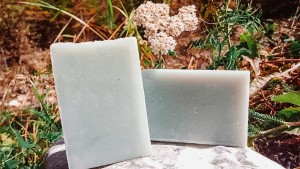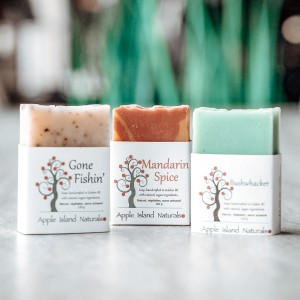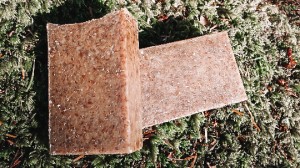The word ‘soap’ is used for a lot of skin cleansers. Whether it be solid, liquid, or powder, within each of these categories there are various shapes, packaging, colors, and scents surrounding them. There are also soaps that deodorize, some that are anti-aging, moisturizing, and even antimicrobial. Most people use soap several times a day and it’s one of the primary tools in preventing transmission of some bacterial and viral diseases. Did you know that not all soaps are equal in potency or efficacy, and not every soap is good for your skin?
Want to experience Handmade Natural/Vegan Soap Benefits? Click here to browse our range
Two basic types of soap
1. Handmade soaps
2. Commercially made soaps
Commercially made soaps are usually cheaper than handmade soaps and here is why:
Modern science has proven what was already assumed through common sense: toxins from our environment are, in large part, absorbed through our skin. The skin is the largest organ in the human body, and has the most contact with the outside world, so we should be concerned about what we put on it, such as soap, which most of us use every day.
One way to reduce exposure to potentially harmful toxins is to start using natural soap.
What is natural soap?
Natural soap starts with natural ingredients, most of which are butters and oils that are derived from various plants. These ingredients are rich in vitamins, nutrients, and antioxidants which help keep the skin and hair clean and healthy. Many natural soaps have other beneficial ingredients added as well such as clay’s, salts, essential oils, and botanical extracts. Because handmade soaps take longer to produce and are usually made of higher quality ingredients, they cost more to buy. However, they also tend to last longer and are better for your skin.
Handmade Natural/Vegan Soap Benefits
1. Real soap instead of ‘fake soap’
There are many products that use terms like ‘cleanser,’ ‘body bar,’ ‘body wash,’ ‘beauty bar,’ ‘skincare bar,’ and even ‘deodorant soap’ in their advertising. Many of these are detergent based products, and not really soaps at all.
2. Natural soap is highly moisturizing
One of the by-products of the soap-making process is glycerine. Glycerine is an excellent skin moisturizer because it attracts moisture to itself – it’s a humectant. Traditionally made soaps contain glycerine, so they hydrate the skin during use, where as many commercially manufactured soaps can dry skin out. Why? Because store-bought, commercial soaps usually undergo a process designed specifically to remove the glycerine.
Our Soap is all natural, vegan and/or vegetarian, browse through them here!
Handmade Soap, however, traditionally made to retain its glycerine content, will leave your skin more moisturized and healthy-looking.
3. Better ingredients used:
When a company produces hundreds of thousands of bars of soap at a time, they are usually manufacturing synthetic substitutes for the real thing.
Many synthetic ingredients are damaging to the respiratory, immune, reproductive, and endocrine systems, and have the potential to damage our skin. Commercial soaps often contain parabens, sulphates, and triclosan which can trigger allergies, disrupt hormone levels, and possibly increase the risk of some cancers. Handmade Natural soaps, however, contain natural ingredients like olive and coconut oils, Shea butter, and sustainable palm oil (which is the best vegan substitute for lard and tallow). These ingredients are extremely healthy and nourishing for our skin.
4. Cruelty-Free and Animal-Friendly
Another benefit of handmade natural/vegan soap is that there is no animal testing, and no animal products are used to make them. Natural soap is usually made in small batches so no large-scale factories or other facilities that cause widespread environmental damage are required.
5. Unique, handmade products
Natural soap bars vary slightly from bar to bar in appearance and scent, just as natural ingredients vary slightly depending on weather and other conditions that affect the plants they are derived from. Where they do not vary, however, is in the lack of harmful ingredients and the abundance of healthy ones that are in each bar.
6. Rich in antioxidants
The ingredients used in natural soaps include many that are natural antioxidants which can help to repair the skin by reducing inflammation and increasing hydration. This gives the user younger-looking, healthier skin.
7. Wider choice
Natural soaps are normally made in small batches, by local producers. Small batches not only mean better quality control, but also a wider variety of products.
8. Better for the environment
Natural soap does not produce harmful environment toxins. The soap breaks down easily after use and does not harm the water or the wildlife that shares the water in our rivers, lakes, and oceans. Most natural soaps also contain essential oils for real aromatherapy. The pure essential oils in them can stimulate neurochemicals in the brain that can improve your mind, body, and spirit.



